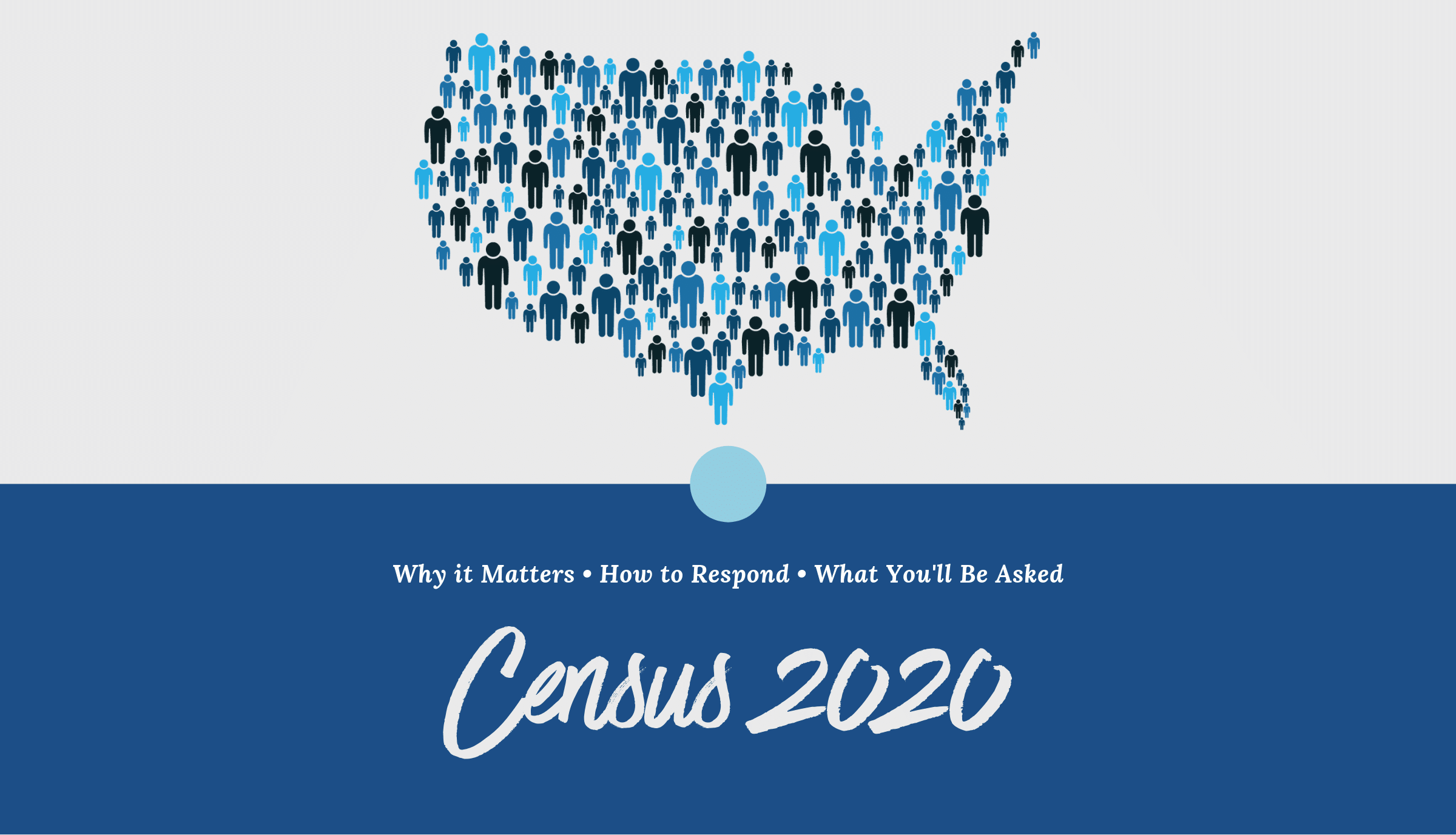13 Aug 2020 Census: What You Need to Know
What is the Census?
Article One, Section Two of the United States Constitution mandates that the federal government count all people living in the country. The census is used for a variety of reasons, including determining congressional representation and determine federal funding for states and communities. The census counts every person living in the United States and the five U.S. territories—once, and only once. The census is conducted every 10 years by the U.S. Census Bureau, a nonpartisan government agency.
“A new school to ease overcrowded classrooms. A new road to ease overcrowded commutes. There are many ways the 2020 Census can shape your community. The results, collected once a decade, help determine how more than $675 billion in federal funding is distributed to states and communities every year.” – US Census Bureau
What Will You Be Asked?
You will be asked seven questions on the Census. Those questions are:
- How many people are living or staying at your home on April 1, 2020? This will help the Census Bureau count the country’s population, and ensure that they count people once, only once, and in the right place according to where they live on Census Day.
- Is the home you live in owned or rented? This will help the Census Bureau produce statistics about homeownership and renters. The rates of homeownership serve as one indicator of the nation’s economy. They also help in administering housing programs and informing planning decisions.
- What is the sex of each person in the household? This allows the Census Bureau to create statistics about males and females, which can be used in planning and funding government programs. These data can also be used to enforce laws, regulations, and policies against discrimination.
- What are the ages of each person in the household? Similar to recording the sex of each person, the Census Bureau creates statistics to better understand the size and characteristics of different age groups. Agencies use these data to plan and fund government programs that support specific age groups, including children and older populations.
- What is the race of each person in the household? This allows the Census Bureau to create statistics about race and to present other statistics by racial groups. These data help federal agencies monitor compliance with anti-discrimination provisions, such as under the Voting Rights Act and Civil Rights Act.
- Is anyone in the household of Hispanic, Latino, or Spanish origin? These responses help create statistics about this ethnic group. This is needed by federal agencies to monitor compliance with anti-discrimination provisions, such as those under the Voting Rights Act and the Civil Rights Act.
- What is the relationship of each person in the household to one central person? This allows the Census Bureau to create estimates about families, households, and other groups. Relationship data are used in planning and funding government programs that support families, including people raising children alone, and other households that qualify for additional assistance.
Who has access to my answers?
The Census Bureau keeps your information confidential. They are bound by federal law to protect your information, and your information will only be used for statistical purposes.
Am I required to respond to the Census?
Yes. All people living in the United States, Puerto Rico, American Samoa, Commonwealth of the Northern Mariana Islands, Guam, and the U.S. Virgin Islands are required by law to be counted in the 2020 Census. Allowing the Census Bureau to get a complete and accurate count of the population is critically important. As such, responding to the Census is required by federal law. If you do not respond, the U.S. Census Bureau will follow up in person to collect the information.
Why is the census so important?
The results are used to determine how many seats your state gets in Congress. State and local officials also use census counts to draw boundaries for congressional districts, state legislative districts, and school districts.
How can I respond to the Census?
For the first time in American history, there are three ways to participate in the Census: online, by phone, and by mail. If you do not respond online, by phone, or by mail, a Census Bureau representative will follow up in person to collect the required information.
Need more information?
Visit the Census website at 2020census.gov.

Written by Mason Warren.
Mason Warren is the Public Relations Coordinator at the Shelby County Public Library. He has worked at the Library since 2016. He is a graduate of Martha Layne Collins High School (2018) and is pursuing a Bachelor of Arts in Communication at the University of Louisville. Mason serves on the Board of Directors at the Shelby County Community Theatre and was a founding member of the charity Break Through For a Buddy. In his spare time, Mason enjoys photography and spending time with his two dogs, Baxter and Molly.



Sorry, the comment form is closed at this time.